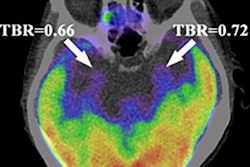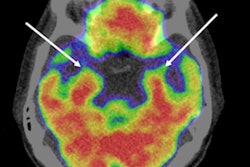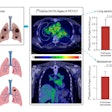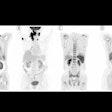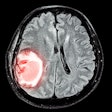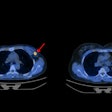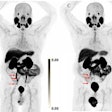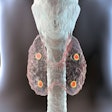Brain activity related to chronic stress may be associated with the aggressiveness of tumors in women with endometrial cancer, suggests a study published November 18 in Scientific Reports.
The finding is from a PET imaging analysis of 161 women that showed that high amygdala activity (AmygA) was independently associated with lymph node (LN) metastasis in postmenopausal patients, but not in premenopausal patients.
“The findings of this study provide novel insights into the relationship between chronic stress, as indicated by AmygA and LN metastasis in endometrial cancer patients, specifically highlighting a significant association in postmenopausal women,” noted lead authors Ki-Jin Ryu, MD, PhD, and Sungeun Kim, MD, PhD, of the Korea University College of Medicine in Seoul.
Many studies have reported that chronic stress can increase the risk of tumors and promote tumor aggressiveness in various cancers, such as stomach, lung, and skin cancer, yet the relationship between chronic stress and endometrial cancer remains inconclusive, the authors explained.
To further explore connections, the group studied whether F-18 FDG-PET/CT imaging of the amygdala -- the brain area that regulates responses to psychological stress -- could be linked to the spread of endometrial cancer to lymph nodes.
“To our knowledge, this is the first investigation utilizing F-18 FDG-PET/CT to explore the link between AmygA and LN metastasis in this patient population,” the group wrote.
The researchers recruited 161 women with newly diagnosed endometrial cancer who underwent preoperative F-18 FDG-PET/CT imaging and surgery between January 2010 and December 2019. Two expert nuclear medicine physicians analyzed the images and quantified F-18 FDG radiotracer in the amygdala using maximum standardized uptake values (SUVmax).
Out of the 161 patients, 24 were confirmed to have LN metastasis, while 137 showed no evidence of LN metastasis. Furthermore, 105 patients were postmenopausal, and 56 were premenopausal.
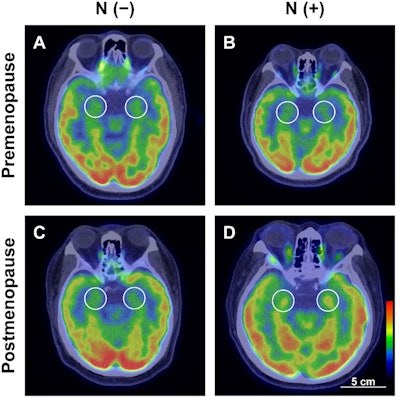 Representative images of metabolic activity in the amygdala (AmygA) of premenopausal patients (A,B) and postmenopausal patients (C,D), categorized by lymph node metastasis. The circular region of interest indicates the amygdala. N (−); negative LN metastasis, N (+); positive LN metastasis. Image available for republishing under Creative Commons license (CC BY 4.0 DEED, Attribution 4.0 International) and courtesy of Scientific Reports.
Representative images of metabolic activity in the amygdala (AmygA) of premenopausal patients (A,B) and postmenopausal patients (C,D), categorized by lymph node metastasis. The circular region of interest indicates the amygdala. N (−); negative LN metastasis, N (+); positive LN metastasis. Image available for republishing under Creative Commons license (CC BY 4.0 DEED, Attribution 4.0 International) and courtesy of Scientific Reports.
Postmenopausal patients with LN metastasis exhibited significantly higher levels of amygdala SUVmax (4.1 vs. 3.61) compared with those without LN metastasis, according to the results. In contrast, premenopausal patients showed no significant difference in SUVmax (3.59 vs. 3.59) compared with those without LN metastasis.
In addition, the researchers observed that spleen and bone marrow SUVmax, which are well-established surrogate markers of inflammation related to stress, were also significantly elevated in postmenopausal patients with LN metastasis compared to those without LN metastasis (2.27 vs. 2.02). However, premenopausal patients with and without LN metastasis showed no statistical difference in these systemic inflammation markers.
“The absence of a significant association between AmygA and LN metastasis in premenopausal women suggests that menopausal status may modulate the relationship between stress-related neural activity and cancer progression,” the researchers wrote.
While further research is needed to understand the underlying mechanisms, the results highlight the importance of considering menopausal status when evaluating the impact of stress on cancer progression, the researchers suggested.
“Additionally, AmygA may serve as a valuable imaging biomarker for identifying patients at a higher risk for LN metastasis, particularly in the postmenopausal population,” the group concluded.
The full study is available here.





